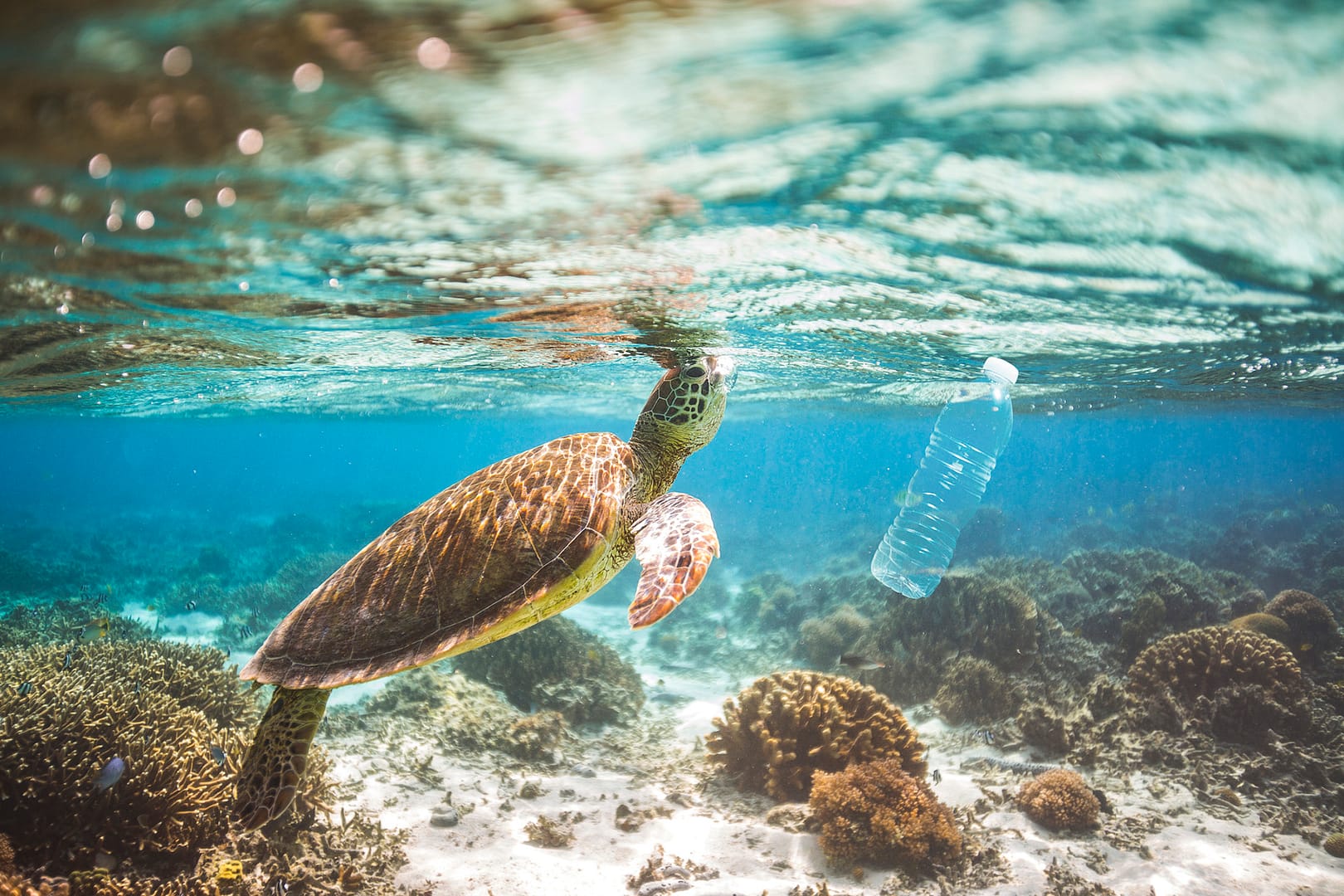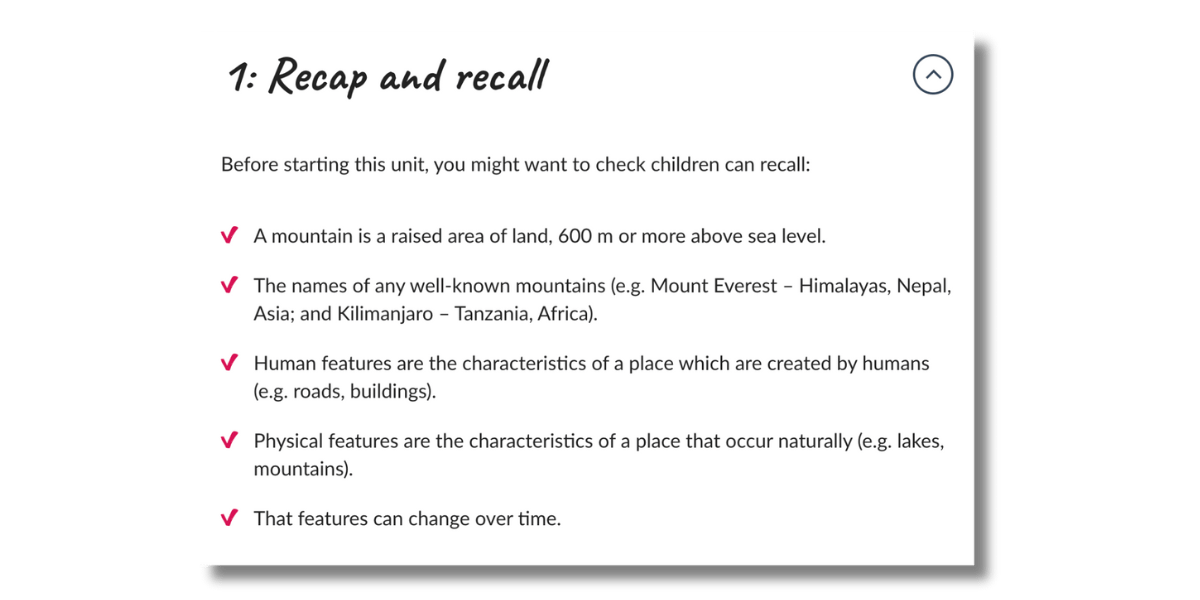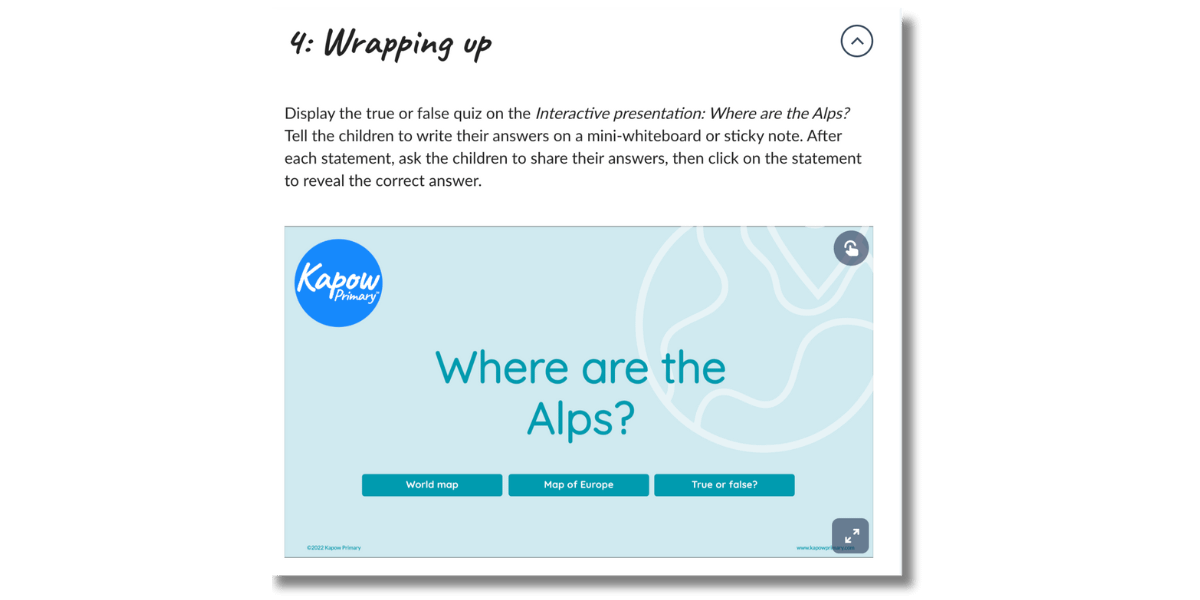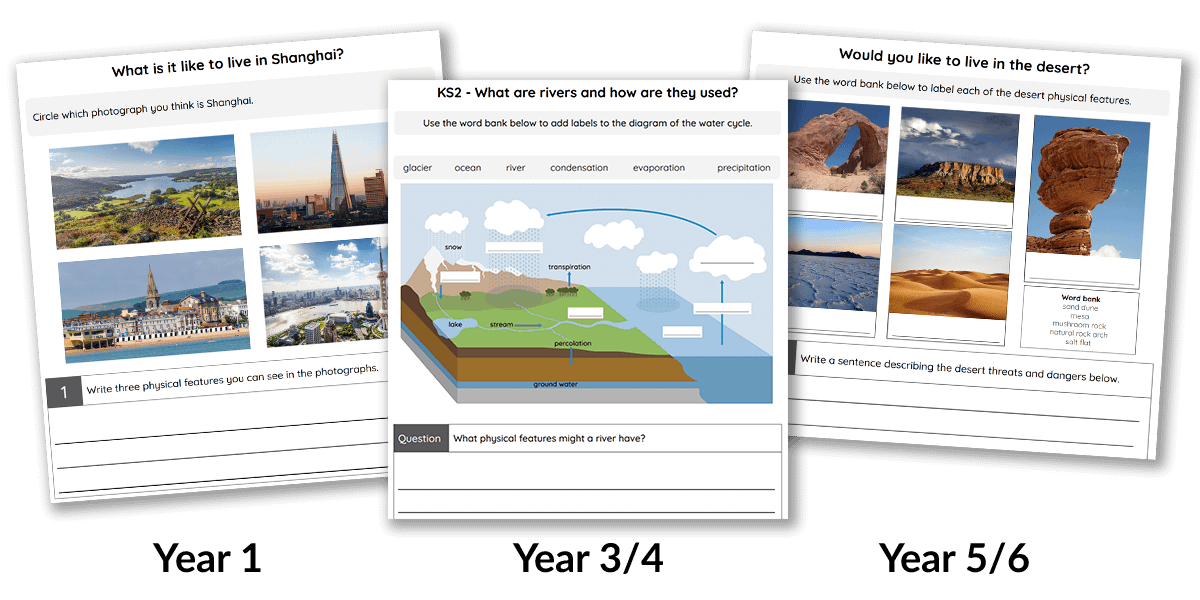Assessing Geography In Primary Schools: Navigate The World With Kapow Primary
Written by Kapow Primary
Published on 12th December 2023
Last Updated: 8th November 2024
Written by Kapow Primary
Published on 12th December 2023
Last Updated: 8th November 2024

As with other primary school foundation subjects, assessing Geography and understanding progression across the school can be challenging. We’ll explore how to maximise Geography assessment opportunities with examples from Kapow Primary’s Geography scheme. We’ll also delve into how you can use informal assessment methods in Geography lessons and beyond.
Assessment is important in order to:
In many schools, curriculum organisation means that Geography is taught for only half the year. Consequently, children don’t have Geography lessons for substantial periods of time. This affects knowledge retention and highlights the need for pupils to revise their geographical knowledge regularly, not just in Geography lessons.
It can be difficult for a teacher to assess a concept if they don’t fully understand it. Geography is a subject with specialist vocabulary and complex skills, which includes understanding how socio-economic factors influence trade and natural resources and using six-figure grid references when map reading. Teachers often receive little training in Geography and, unsurprisingly, lack confidence.
At Kapow Primary, we’ve created bite-sized videos to upskill teachers before they teach lessons. In this way, through provision of integrated CPD, teachers can confidently deliver lessons with sufficient understanding to accurately assess children’s learning.
At the beginning of each lesson, children engage in a recall task, from the ‘Recap and recall’ section of the lesson plan. This helps pupils to remember prior knowledge and is particularly important at the beginning of a unit as a way to revisit learning from previous year groups. Each lesson in a unit will recap knowledge learnt in the previous lesson.

Source: The recap questions from the first lesson of the lower key stage 2 unit ‘Why do people live near volcanoes?’
At Kapow Primary, our lesson plans follow a spiral curriculum design, allowing pupils to revisit learning and build on their knowledge continually.
‘Wrapping up’ happens at the end of every lesson. Children are asked questions to assess their understanding of the lesson content with explicit opportunities for assessment linking back to the learning objective. Teachers can use their answers to inform future lessons.

Source: Wrapping up from the first lesson of the upper key stage 2 unit ‘What is life like in the Alps?’
Our assessment spreadsheets are for schools requiring a more formal assessment method to track pupil data. Fully customisable, our Geography assessment spreadsheet enables teachers to assess pupils against the assessment statements from each Geography lesson.
The Geography: National curriculum coverage document explains how Kapow Primary lessons fulfil the statutory requirements for Geography outlined in the national curriculum (2014).
Every Geography unit has a quiz, with five questions for pupils in key stage 1 and ten questions for children in key stage 2. The quizzes feature closed questions and a more in-depth question at the end for children to explain their learning further and to give opportunity for pupils to demonstrate greater in-depth thinking.
A quiz is an enjoyable and interactive way to assess learning. It is not a test. Quizzes are more fun if you get creative with how you use them. Why not organise children into teams and invite them to take turns to be quiz masters? Or ask pupils to create their own quizzes?
Knowledge catchers often feature an image relevant to the topic and thought-provoking open-ended questions. The quantity and complexity of the questions are tailored to the specific age group.

Two units are skills-based and feature skills catchers instead of knowledge catchers. They are:
Every Geography unit has a ready-made knowledge organiser featuring key facts, informative diagrams and vocabulary. These are often used:
It’s advantageous to find informal assessment opportunities in Geography wherever possible. This helps pupils embed and recall their learning and understand how to apply their Geography skills and knowledge in the real world. Here are a few suggestions:
How can you assess fieldwork skills? The Kapow Primary Geography scheme features fieldwork in every unit, enabling children to develop strong fieldwork skills. Although not suited to more traditional forms of assessment, fieldwork lends itself well to informal assessment methods and self-assessment.
Ways to assess fieldwork:
Although most school trips are for a particular curriculum subject, every school trip is also a Geography trip. Or at least it can be. Simply ask Geography assessment questions either before or after you go to activate geographical thinking. For example:
When children are desperate to tell you where they’ve been on holiday or at the weekend, why not use it to assess their geographical knowledge?

So much of the primary school curriculum provides the possibility for cross-curricular learning. Making connections across the curriculum enables informal assessment of geographical knowledge in other subjects.
Teachers can use geographical questioning to assess knowledge recall and skills in different lessons, such as:
There are many ways to assess primary Geography, which aren’t all immediately apparent. By making the most of discreet opportunities outside of lessons, you can assess children’s knowledge and support them to apply their learning in alternative contexts.